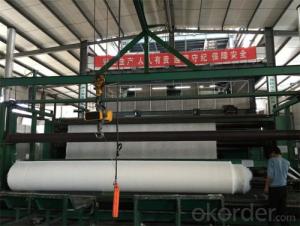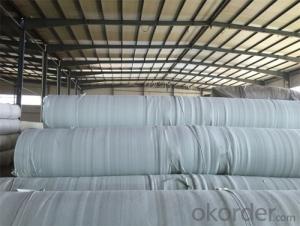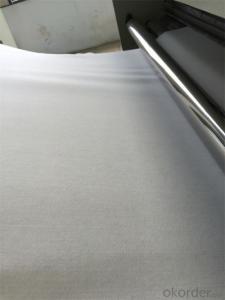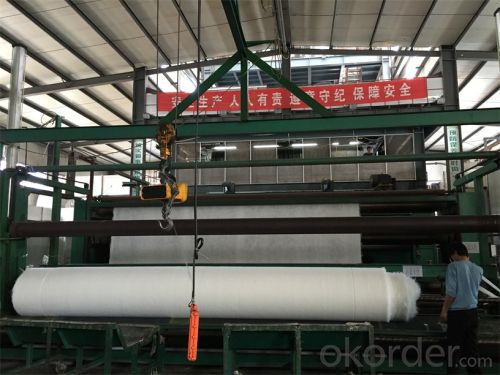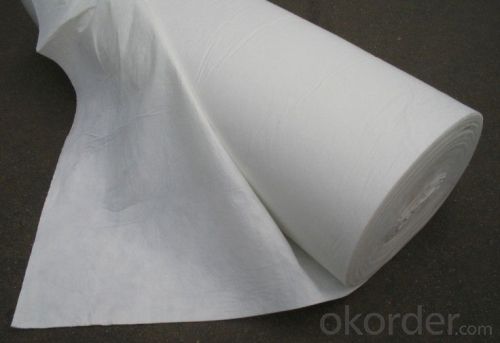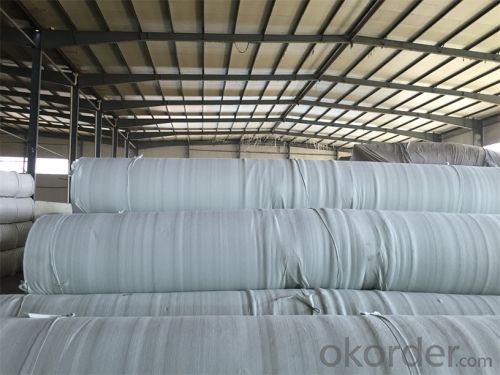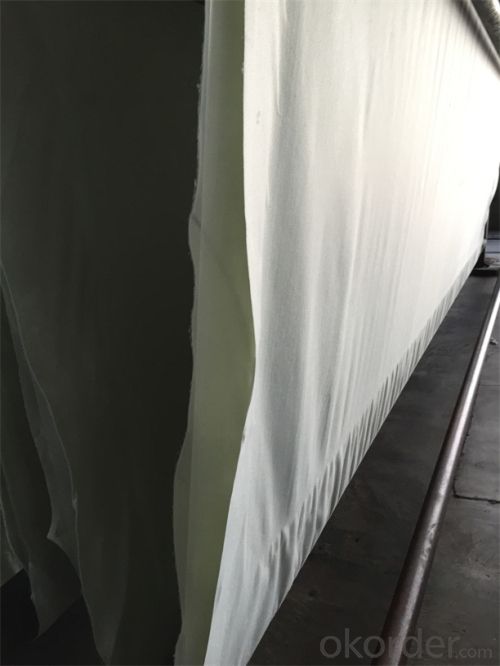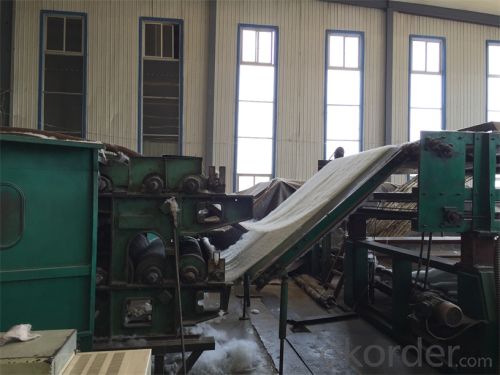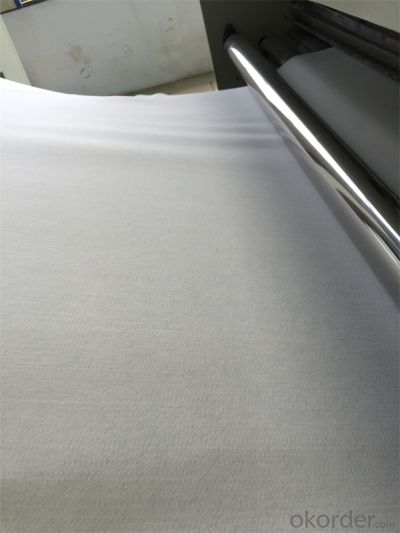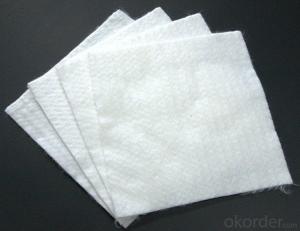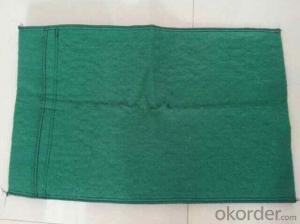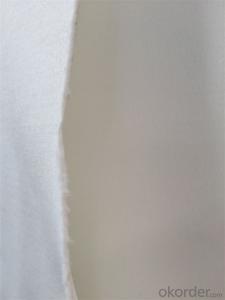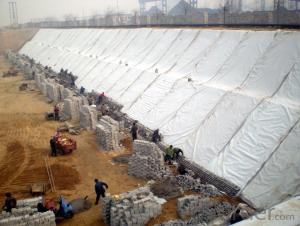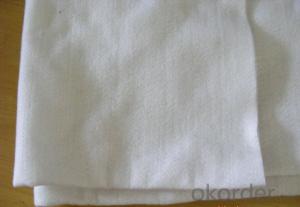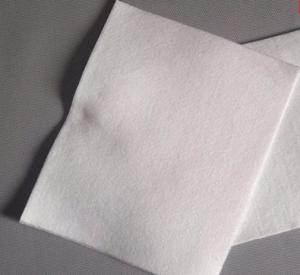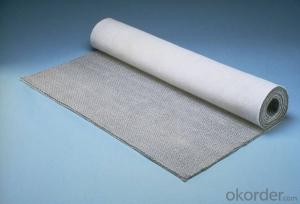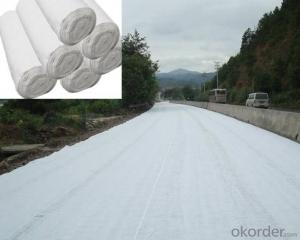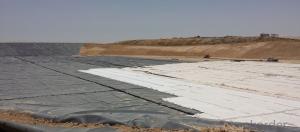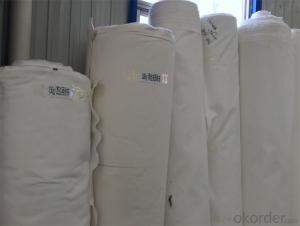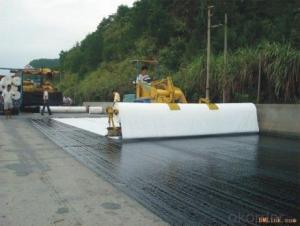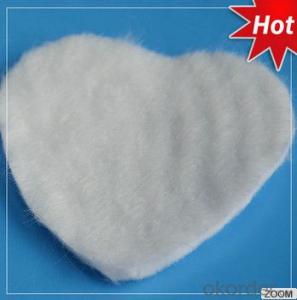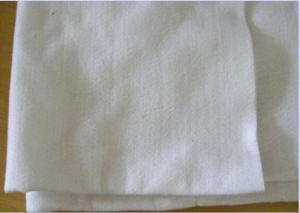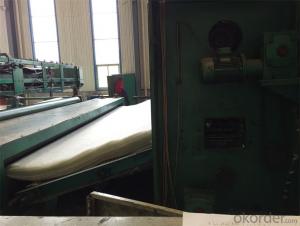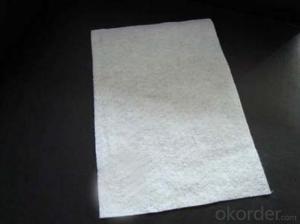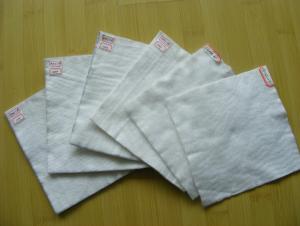Short Fiber Needle Punched Nonwoven Geotextile Fabric Pot
- Loading Port:
- Tianjin
- Payment Terms:
- TT or LC
- Min Order Qty:
- 2000 m²
- Supply Capability:
- 500000 m²/month
OKorder Service Pledge
OKorder Financial Service
You Might Also Like
Short Fiber Needle Punched Nonwoven Geotextile
Introdcution of Short Fiber Nonwoven Geotextile
Made from PP(polypropylene) or PET(polyester) short fiber by nonwoven needle punched manufacturing process, ithas isolation, filtration, drainage, reinforcement, protection and maintenanceetc.
Specifications of Short Fiber Nonwoven Geotextile:
•80g/m2—1500g/ m2
•1m—8m in roll width
the length as clients’ request
Production Standard:
GB/T17638-1998
Jt/t 520-2004
Advantage of Short Fiber Nonwoven Geotextile:
•Good flexibility resistant to corrosion resistant to acids and alkalis anti-oxidation
•Separation filtration, drainage, reinforcement, protection, and maintenance function
Applications of Short Fiber Nonwoven Geotextile:
•Water conservancy project and hydropower project
•Road paving railway
•Airport and port
•River bank protection and tunnel
•Environmental protection, etc
FAQ:
1. Which payment do you accept?
For you convinience,our payment can be L/C,TT
2. Is free sample available?
We can supply free samples. You'll just need to pay for express cost.
3. How about your quality?
We have strict quality control system, we make testing on incoming raw material and finished products. Your third party testing is also welcomed. With high quality, our products are used on government projects at home and abroad. Our product quality is accepted by clients from all over the world.
Photos of Products and Factory:
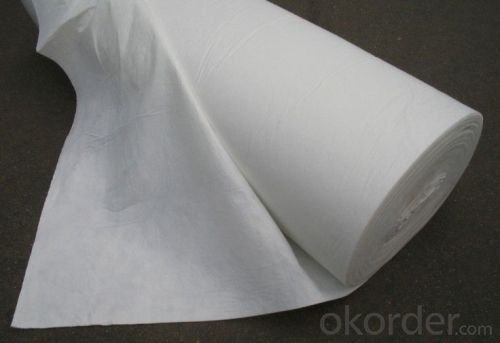
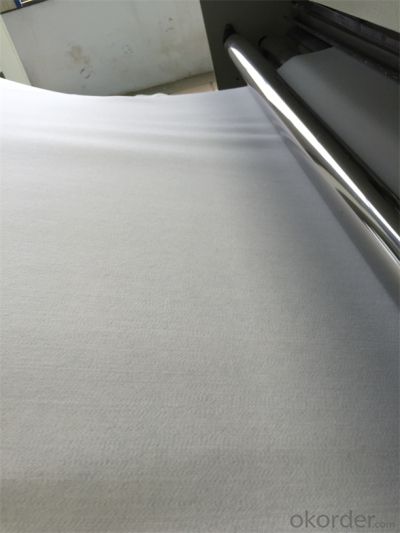
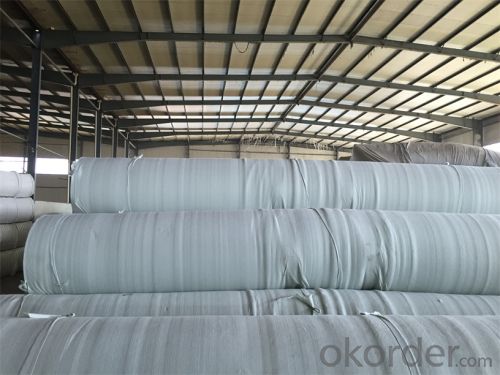
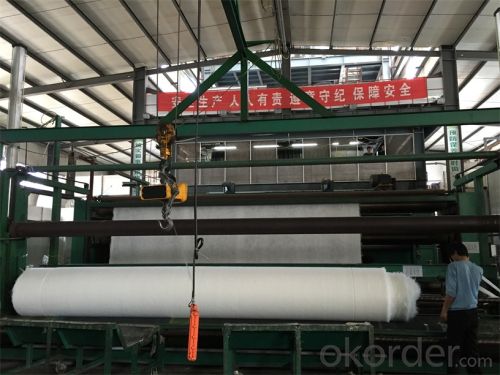
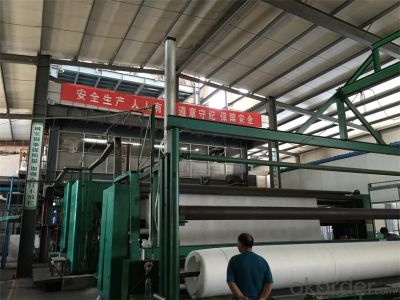
- Q: How do geotextiles improve the performance of geosynthetic clay liners?
- Geotextiles improve the performance of geosynthetic clay liners by providing additional reinforcement and filtration capabilities. They act as a separation layer between the clay liner and other materials, preventing the mixing of different soil layers and enhancing the liner's stability. Geotextiles also enhance the liner's filtration properties, allowing water to pass through while preventing the migration of fine particles. This improves the overall performance and longevity of geosynthetic clay liners in various engineering and environmental applications.
- Q: Above a geotextile one, that there is any acceptance of norms?
- Geotextile with the relevant national standard, I am specializing in the production of geotechnical materials
- Q: How do geotextiles affect water quality?
- Geotextiles can positively impact water quality by acting as a filtration barrier, preventing sediment and pollutants from entering water bodies. They help in reducing erosion, promoting better stormwater management, and improving overall water clarity.
- Q: Can geotextiles be used in coastal dune stabilization projects?
- Yes, geotextiles can be used in coastal dune stabilization projects. Geotextiles are often employed to reinforce and stabilize sand dunes by trapping and retaining sand particles, preventing erosion caused by wind and water. They can be used in various applications such as dune formation, dune restoration, and beach nourishment projects to enhance the natural protection of coastal areas and mitigate erosion.
- Q: Can the tunnel longitudinal drains be wrapped with geotextiles and wrapped with a waterproof board?
- With geotextile wrapped drainage pipe is generally played the role of seepage drainage, do not need waterproof board (you said the waterproof board should be geomembrane it) Chong Hong geotextile material manufacturers
- Q: How do geotextiles affect soil permeability?
- Geotextiles can improve soil permeability by creating a pathway for water to flow through the soil, preventing clogging and enhancing drainage.
- Q: What is geotextile? Its use
- Geotextile is a kind of non-woven fabric. Its use is the road moisturizing, dam protection, reinforcement, isolation.
- Q: Composite geotextile per square meter of labor costs how much money 'sewage treatment pool' ground plane 'square meters. More
- The cost of 2-5 yuan ranging from the specific needs to see you as well as construction machinery personnel
- Q: How do geotextiles help with reinforcement of geogrid reinforced soil slopes?
- Geotextiles help with the reinforcement of geogrid reinforced soil slopes by providing additional strength and stability to the system. They act as a separator between the soil and the geogrid, preventing soil particles from infiltrating the geogrid and reducing its effectiveness. The geotextiles also distribute the load evenly across the geogrid, improving its load-bearing capacity and reducing the potential for localized failures. Additionally, geotextiles can enhance the overall drainage and filtration properties of the slope, minimizing the risk of water accumulation and soil erosion.
- Q: What are the considerations for geotextile selection in coastal engineering projects?
- When selecting geotextiles for coastal engineering projects, several considerations need to be taken into account. First, the geotextile should have a high tensile strength and durability to withstand the harsh coastal environment, including wave action and fluctuating water levels. It should also possess excellent filtration properties to prevent the migration of fine particles while allowing water to pass through. Additionally, the geotextile's permeability and hydraulic conductivity should be considered to ensure proper drainage and avoid the buildup of hydrostatic pressure. The material's resistance to biological degradation and UV radiation is crucial for long-term performance. Lastly, the geotextile should be compatible with the surrounding materials and easy to install and maintain, minimizing disruptions to the coastal ecosystem and reducing overall project costs.
Send your message to us
Short Fiber Needle Punched Nonwoven Geotextile Fabric Pot
- Loading Port:
- Tianjin
- Payment Terms:
- TT or LC
- Min Order Qty:
- 2000 m²
- Supply Capability:
- 500000 m²/month
OKorder Service Pledge
OKorder Financial Service
Similar products
Hot products
Hot Searches
Related keywords
